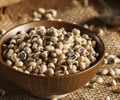The European Commission-funded FLORA research project seems to have confirmed that diets rich in flavonoids, a variety of polyphenols, may be effective in keeping the heart stronger.
University of Grenoble researchers, who collaborated on the project with other research centres, describe their scientific work as one of the few approaching this field by in vivo studies.“So far the biological and protective activities of various flavonoids have been extensively studied in vitro, on cell- based assays. Nevertheless, this kind of approach has a major limitation: it is extremely difficult to assess precisely the nature of all flavonoids absorbed following consumption of plants present in a given meal. In other words, laboratory cultured cells alone are not sufficient to study a complex mechanism such as that of absorption of food flavonoids,” says Marie-Claire Toufektsian, lead author of the study.
The researchers used two kinds of corn in their study -- one anthocyanin-free (anthocyanins is a variety of flavonoids) and the other, obtained by the Department of Biomolecular Sciences and Biotechnology of University of Milan through traditional cultivation techniques with no transgenic modifications, rich in anthocyanins.
“The corn seeds were introduced into a rodent food formula in order to obtain two groups of rats following two different kinds of diet for a couple of months” says Chiara Tonelli, head of the Milan group.
Meanwhile, using a method developed by the Research Laboratories at the Catholic University of Campobasso, the researchers accurately measured the anthocyanins levels in urine and plasma samples from the two groups of rats.
Thereafter, the research group studied the onset and evolution of myocardial infarction induced experimentally in both groups.
Advertisement
The researchers insist that it is important to take note of the quantity of absorbed anthocyanins.
Advertisement
The researchers also looked at the differences between Mediterranean diet and the Western Diet, which is rich in fats and poor in fibres.
“The anthocyanins content of the traditional Mediterranean diet is much higher than that of the Western Diet, which might explain why the Mediterranean diet is cardioprotective” says Michel de Lorgeril, cardiologist, head of the Grenoble group.
The researchers, however, warn that there is a huge difference between humans and rats in terms of flavonoid absorption and metabolism.
Human volunteers will be studied in another phase of the FLORA Project, wherein researchers will try to determine how flavonoids are absorbed by the human body to play their beneficial effects.
The Research Laboratories of the Catholic University of Campobasso are studying the process of absorption and metabolism of anthocyanins from blood orange juice- one of the most generous sources of flavonoids- in human body.
Source-ANI
SRM/L











